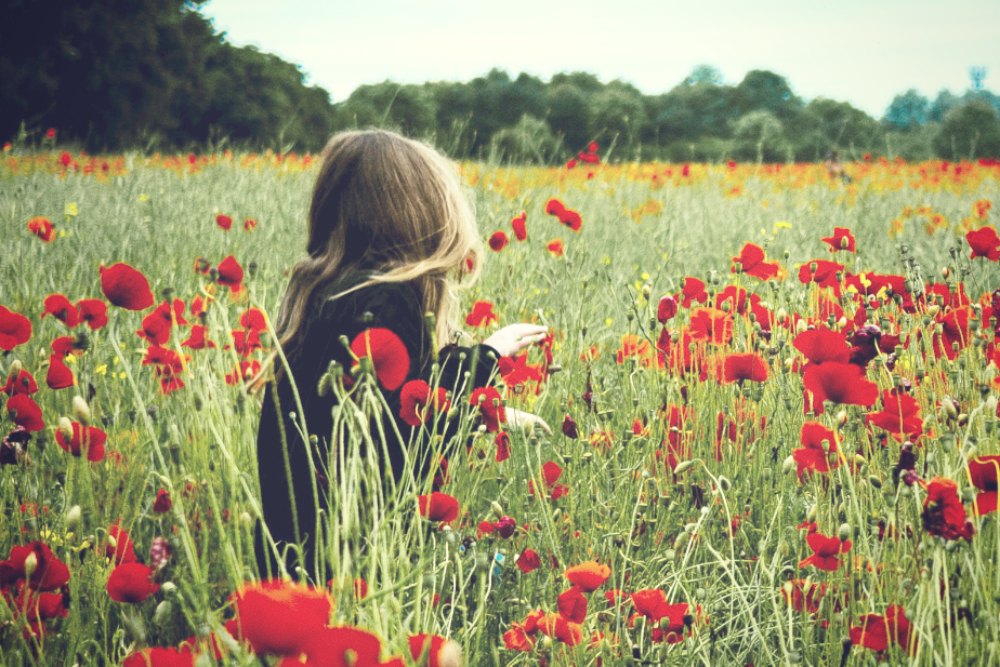What do I mean by the Myth of Specialness? Isn’t everyone special in his or her own right? It’s true. We are all special on a certain level. Everyone has a unique temperament and personality they bring to the world. This is what and how you impart your own unique set of influences and dynamics on the world around you.
There are parts of your personality that are uniquely yours and not shared with any other person. Even identical twins that share exact DNA replicas are unique and distinct from each other. They will have their own personalities and will have vastly different interpretations of the world around and within them. We all bring our own unique temperament to each moment of time. How you choose to leverage your personality and influence the world around you is also unique. We are all capable of influencing and imparting change on our world, both internally and externally. We can leverage our unique personality traits to influence and shape our reality in ways that will run the gamut from positive to nefarious, if we so choose (Think Madoff. He leveraged his personality to impart significant change in our global society. But it wasn’t used for good).
But even this, by the very nature of the fact that we all have this power, makes it not so special after all, right? If everyone has this ability, even though each person’s expression of this power will be unique, then the power isn’t statistically speaking “special” any more. Special denotes rare and from a scientific standpoint that translates to a statistical term referred to as outliers. The data points that occur the least frequently in any given bell curve.
Here’s the thing though, the vast majority of us fall within the bell curve. What’s happened as a result of our emphasis on specialness as the basis for why our experiences, feelings and/or thoughts are so rare and unlike what others think, feel, and experience is that our shared sense of humanity ends up being less accessible to us. We have ended up more isolated and alone in our experiences. Epic proportions of isolation, loneliness, and disconnection are reported in my office on a daily basis. This myth of specialness is the root cause of a lot of the clinical dynamics that unfold in my office, including entitlement, grandiosity, emotional disconnectedness, social isolation and alienation, nearly all the various forms of “isms” and many more.
Let’s start with the obvious expression of specialness, the one that everyone probably thinks about when they think about this dynamic.
Entitlement. We all know these people. We watch them orbit in the world with a style of behavior that screams tend to me, look at me, treat me special because that is what I deserve. We see it in pop culture and on TV shows like TMZ and the fables and folklore of stars that wouldn’t let a waitress look them in the eye or required all the green M& M to be removed from the bag before consumption. These pop culture sound bites reflect the extreme expression of entitlement and a belief that he/she is so special, so uniquely rare that the typical rules of humanity do not apply. Often entitlement is directly paired with affluence and power. It is true that in our society, the wealthier you are, the more power you tend to have, and the more bullshit other people will put up with in order to orbit within your sphere. This pairing of affluence, power and entitlement is a perfect storm of events that often yields more extreme expressions of this myth of specialness. That is why they rise to the level of folklore. In this expression, the entitlement ends up impacting their ability to access empathy, that developmental achievement that allows us to feel what others feel. Empathy is distinct from sympathy. With empathy you can feel what others feel. With sympathy you may feel bad for what others feel, but you aren’t necessarily able to feel what it must be like for them to feel that way. Specialness is born from an environment that emphasized the child’s uniqueness to the exclusion of also highlighting the importance of our shared human sameness, those core elements of being human, that we all share: We all bleed. We all feel pain. We all fall in love. We all face death. Ours. And those we love. This specialness myth reflects a segment of the population who have been told, shown, and modeled that their uniqueness is what gives them power; it’s the currency they leverage to influence the world in ways that suit their needs. The silent mantra they echo is, “I am different and unique and special and therefore I deserve a certain type of treatment.” This form of specialness is always riding shotgun with entitlement as its partner in crime. When I feel this type of character structure in my practice I know that soon enough pathologic entitlement will surface as an equally powerful dynamic. Both men and women express this form of specialness but in very different ways. That discussion is beyond the scope of this blog, but within the therapeutic setting this distinction bears out important information for us about the way gender influences the trajectory of our development and how that manifests at the societal level.
But there’s a second style of specialness that is harder to detect because it is less blatant. In this presentation the person doesn’t exhibit entitlement as the primary mode of expression. Instead they are mired in the more morose aspect of the emotional spectrum, such as martyrdom and the “woe-is-me” dynamic. In this style the person transfers the sense of specialness towards their suffering and believes that they alone have been wronged, wounded, and pained in ways that other, less special people simply could not understand. They become isolated and disconnected from others by the very sense of specialness that was supposed to make them feel superior. In this style, the people are often very resistant to any effort to empathize with their pain. For example, if I reflect in reaction to a patient’s extreme grief over the death of a loved one, “I can really relate to that sense of loss. I am very sorry,” these patients will often reply with why their suffering is unique (and usually that is code for worse) from whatever sense of loss I might have felt throughout my journey. They can not absorb the support and empathy of the people around them because they are imprisoned in the myth of specialness, where it is only them, uniquely and to the exclusion of all other human mammals that could identify with their experience. This person too will ultimately end up feeling more disconnected and dis-integrated from the people in their lives. This expression of the myth of specialness rides shotgun with grievance collecting as its partner in crime. Where there is one, there is always the other. This sense of being wronged (and collecting grievances) allows the person to place responsibility externally and thus yields an extreme sense of dis-empowerment, as the person believes they can’t assert influence over their life.
In the first expression of the myth of specialness, the person is left with less access to their own sense of empathy for others. But in this latter style, they are unable to absorb the empathy of others. Each, in their own unique ways, is imprisoned by the very sense of specialness that once served to protect them from the truer reality: As a species, we are all rather typical. And that’s not a bad thing either. I don’t seek to be provocative, I assure you. But we are “all more human than otherwise” (Lacan). Sure, the injuries change. The narrative fluctuates. The clinical presentation shifts from person to person, but down underneath the surface, we are all pretty similar. The stuff that matters when it comes to the business of being human, it’s all pretty standard stock. We are born. We require connection to survive. We break. We heal. We wound. We are wounded. We heal again. We die. Rinse and repeat.
What I have found helpful therapeutically is to encourage people to observe if they manifest this myth of specialness. Stay attune for magical thinking patterns, such as “that’ll never happen to me because” statements (insert the magical thinking belief “because I am special…”). Observe how you react when things don’t go your way. What is your truest instinct? Do you brush up against entitlement, that sense that you are owed something simply because you exist? Do these feelings sometimes make it hard for you to feel empathy for your fellow human? Or, conversely, ponder how you orbit around others when you don’t feel good about yourself or your place in life. Do you consistently insinuate that your suffering is uniquely burdensome in distinction from how others may experience pain? Is it hard for you to feel held and maintain authentic connection when you are wounded or hurt or grieving? Does this inability to absorb others empathy leave you feeling isolated and disconnected? If it does, I urge you to be curious about this dynamic in your life.
If you’re in therapy, I’d encourage you to bring these observations to your therapist and begin to explore the inter-generational patterns of attachment that may have contributed to the development of this dynamic. Additionally, we know now so much more about neuro-plasticity and how to promote neuro-biological changes from the emerging science studying mindfulness, gratitude, and other ways that being still and observant influence our central nervous system. Explore the role of these forms of change in your own developmental trajectory and begin to implement these practices into your daily routine. Remember that therapeutic change and personal growth does not often come in grand “ah-ha” moments. The “ah-ha” moments are what we would call insight. Insight informs us of where we need to implement change. But change, at a neuro-biological level, happens first when we wrestle with stillness. Become still, reflective, and curious about this dynamic in your life. Observe your interior world using the tools I have discussed in other blogs, including therapy, mindfulness, and meditation.
About the Author: Dr Sarah Sarkis
 Sarah is a licensed psychologist living in Honolulu, Hawaii. Originally hailing from Boston Mass, she has a private practice where she works with adults in long-term insight oriented therapy. She works from an existential psychology vantage point where she encourages her patients to “stay present even in the storm.” She believes herself to be an explorer of the psyche and she will encourage you to be curious about the journey rather than the destination. She emphasizes collaboration, partnership, and personal empowerment.
Sarah is a licensed psychologist living in Honolulu, Hawaii. Originally hailing from Boston Mass, she has a private practice where she works with adults in long-term insight oriented therapy. She works from an existential psychology vantage point where she encourages her patients to “stay present even in the storm.” She believes herself to be an explorer of the psyche and she will encourage you to be curious about the journey rather than the destination. She emphasizes collaboration, partnership, and personal empowerment.
She approaches psychological wellness from a holistic and integrative perspective. Her therapeutic style is based on an integrative approach to wellness, where she blends her strong psychodynamic and insight oriented training with more traditionally behavioral and/or mind/body techniques to help clients foster insight, change and growth. She has studied extensively the use of mindfulness, functional medicine, hormones, and how food, medicine and mood are interconnected. Her influences include Dr.’s Hyman, Benson, Kabat-Zinn and Gordon, as well as Tara Brach, Brene’ Brown, Irvin Yalom and Bruce Springsteen to name only a few.
Please visit her website at Dr SarahSarkis.com and check out her blog, The Padded Room.



Leave a Reply